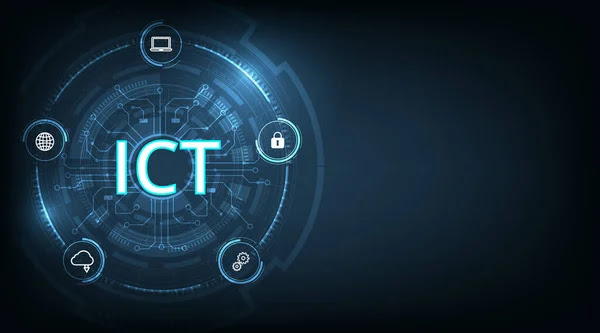Boosting Our Mental Well-Being: Technology has become an integral part of our daily lives, and it has brought about many positive changes to our mental well-being. From online therapy sessions to meditation apps, technology has provided us with various tools to improve our mental health.
The introduction of wearable technology has made it easier for individuals to track their physical activity levels, sleep patterns, and stress levels. This data can help identify triggers that affect our mental health and help us manage them better.
In addition, virtual reality has emerged as a promising tool for treating anxiety, phobias, and PTSD. With the help of virtual reality, individuals can confront their fears in a controlled and safe environment, which can help them overcome their anxiety. Overall, technology has opened up new avenues for people to take care of their mental health, and it continues to evolve with new advancements.
1) Mental Health Apps

Mental health apps are one of the top ways technology is boosting our mental well-being. These apps are designed to help people manage and improve their mental health by providing tools and resources that are easily accessible.
With the rise of smartphones and mobile devices, mental health apps have become increasingly popular and are now a key component of many people’s mental health care. These apps offer a range of features, including meditation exercises, cognitive-behavioral therapy, and mindfulness techniques.
They also provide mood tracking, sleep tracking, and other features that help users monitor their mental health over time. Overall, mental health apps are an important tool for anyone looking to improve their mental well-being and live a happier, healthier life.
2) Teletherapy

Teletherapy has been a breakthrough in the field of mental health, and it’s one of the top ways technology is boosting our mental well-being. It’s a convenient and affordable alternative to traditional in-person therapy sessions that can be challenging to access for some people.
Teletherapy allows patients to interact with their therapists remotely through video conferencing, phone calls, or messaging. This technology has made therapy more accessible to people who live in remote areas or have mobility issues.
Besides, teletherapy has been proven to be as effective as in-person therapy in treating mental health issues like anxiety, depression, and PTSD. It’s also more flexible, allowing patients to schedule sessions around their busy schedules. With teletherapy, patients can receive the help they need in a comfortable and safe environment, leading to better mental health outcomes.
3) Virtual Reality Therapy

With the advent of modern technology, mental health treatment has become more accessible and effective. One of the most promising innovations in this field is Virtual Reality Therapy (VRT). VRT is a type of therapy that uses simulated environments to help treat mental health conditions such as anxiety, depression, and PTSD.
It works by exposing patients to various virtual scenarios that are specifically designed to trigger their symptoms. This exposure helps them confront their fears and develop coping mechanisms. VRT has been found to be highly effective in treating a wide range of mental health conditions, and it is becoming increasingly popular among mental health professionals.
It offers an immersive and interactive experience that traditional therapy cannot match, making it a powerful tool in the fight against mental illness.
4) Chatbots And Voice Assistants

The use of chatbots and voice assistants is revolutionizing the way we approach mental health support. These technologies have the potential to provide immediate and personalized responses to people who are struggling with mental health issues. Chatbots and voice assistants are available 24/7 and can offer a non-judgmental and safe space for people to discuss their concerns.
They can also provide resources and guidance for coping strategies and offer referrals to mental health professionals. This technology is particularly beneficial for people who may feel uncomfortable or stigmatized seeking traditional mental health support.
Chatbots and voice assistants can offer a confidential and accessible way for people to take control of their mental health and wellbeing.
5) Online Support Groups

One of the top ways technology is boosting our mental well-being is through online support groups. These groups provide a platform for people to connect with others who are going through similar experiences and offer a sense of community and support.
Online support groups are accessible from anywhere, making it easier for individuals to participate and seek help when needed. Additionally, anonymity is often an option, which can help individuals feel more comfortable sharing their thoughts and feelings.
Technology has also allowed for real-time communication, which means support can be provided quickly and efficiently. Overall, online support groups have become an important tool for those seeking mental health support and have positively impacted the lives of countless individuals.
6) Mindfulness Apps

One of the top ways technology is boosting our mental well-being is through the use of mindfulness apps. These apps offer a variety of guided meditations and relaxation exercises that can help users reduce stress and anxiety, improve focus and concentration, and promote better sleep.
Some apps also provide mood tracking and journaling features that allow users to monitor their emotional states and identify patterns and triggers. Additionally, many mindfulness apps offer personalized recommendations and reminders that can help users stay on track with their mental wellness goals.
Overall, the convenience and accessibility of mindfulness apps make them a valuable tool for anyone looking to improve their mental health and well-being.
7) Virtual Activities

In today’s fast-paced world, technology has become an integral part of our lives. While it has its own set of drawbacks, technology has also been instrumental in boosting our mental well-being. One of the ways in which technology is helping us is through virtual activities.
With the pandemic forcing us to stay indoors, virtual activities such as online yoga classes, meditation sessions, and mental health apps have become increasingly popular. These virtual activities provide us with a safe and convenient way to take care of our mental health without having to leave our homes.
Additionally, virtual activities also offer a sense of community and connection, which is essential for our mental well-being. With the help of technology, we can now take care of our mental health in a way that is both effective and accessible.
8) Mental Health Wearables
The use of technology is increasingly becoming an essential aspect of our daily lives, and it has significantly impacted our mental well-being. One of the significant ways that technology has boosted our mental health is through the use of mental health wearables. These devices are designed to monitor and track various aspects of our daily lives, including sleep, exercise, and stress levels, among others. By providing real-time data on these metrics, wearables can help individuals make informed decisions about their lifestyle choices, leading to better mental health.
Another way in which technology is boosting our mental well-being is through the use of mobile apps. There are a variety of mental health apps available that can help individuals manage anxiety, depression, and other mental health conditions. These apps provide users with tools and resources to help them manage their condition, including meditation and mindfulness exercises, cognitive behavioral therapy techniques, and access to mental health professionals.
In addition to wearables and mobile apps, technology is also boosting our mental well-being through the use of virtual reality (VR) therapy. VR therapy is an emerging treatment option for individuals with mental health conditions, including anxiety and PTSD. By immersing individuals in virtual environments, VR therapy can help them confront and overcome their fears and anxieties in a safe and controlled setting.
Overall, technology has become an essential tool in promoting and enhancing our mental well-being. Whether through wearables, mobile apps, or VR therapy, technology is providing individuals with the tools and resources they need to take control of their mental health and lead happier, healthier lives.
Conclusion
In recent years, technology has become increasingly integrated into our daily lives, and with this integration comes a host of benefits for our mental well-being. From meditation apps to virtual therapy sessions, technology is providing a range of tools that can help improve our mental health. One of the most significant ways technology is boosting our mental well-being is through the use of teletherapy.
This allows individuals to receive therapy sessions from the comfort of their own home, making mental health care more accessible and convenient. Additionally, technology is also helping us stay connected with loved ones through social media and video calls, even when we are physically distant.
Finally, there are a range of mindfulness and meditation apps available that can help reduce stress and anxiety. In conclusion, technology is providing us with a range of tools to help improve our mental well-being, and it is likely that we will continue to see more innovative solutions in the future.


